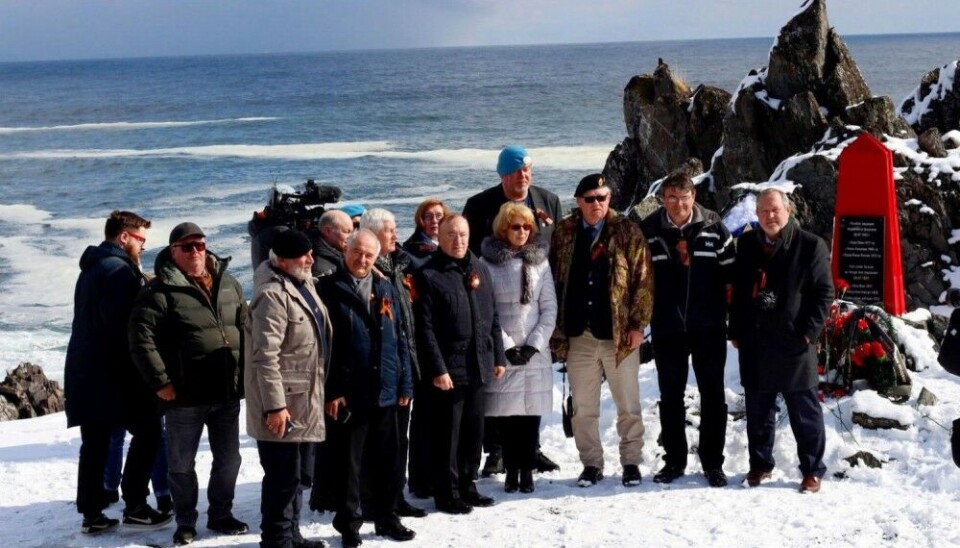
Russian active measures in Eastern Finnmark, Norway
The mayor of Vardø Municipality has established comprehensive WWII memorial guidelines to protect the local society against Russian infiltration and propaganda. Since 2011, Vardø has been targeted by the FSB who has instrumentalised the history of WWII Norwegian partisans to gain access to Eastern Finnmark and in particular Vardø, home to the Globus III radar facilities of the Norwegian Armed Forces in the immediate borderland to Russia.
Last year, the City Council of Vardø cancelled a friendship agreement with Archangels and now Mayor Tor-Erik Labahå wants to take down three local war monuments. Two of these are initiated, paid, and designed by FSB veteran organization Shield headed by former KGB leader in Murmansk Gennadiy Gurylev. Together with Sergey Goncharov, who has been identified as an FSB agent, Gurylev has organized bus trips from Murmansk to Vardø in May and October every year since 2011 - so-called patriotic memory tours, proclaiming to commemorate Norwegian partisans and Soviet soldiers who lost their lives on the northernmost part of the Karelian Front during WWII. In reality, the trips have served as cover to build networks and propagate Russian foreign policy narratives in the Norwegian borderland, with Vardø as a main target.
In 2016, a ”Russian-Norwegian expert group” on partisan history was founded. The group does not include historians and has only one Norwegian member, in addition to FSB affiliates Gurylev and Goncharov. These are the very same actors behind the establishment of the war memorials that the Mayor of Vardø now wants to take down.
The research project Memory Politics of the North has published articles documenting who these Russian actors are and how they have aimed to nurture relations with politicians and local historians in Vardø and Eastern Finnmark. Moreover, our research shows how the Russian actors have been actively supported by the Russian General Consulate in Kirkenes, which since 2014 has used the new Russian and older Norwegian war memorials in Northern Norway to commemorate a growing number of Russian military days, such as Victory Day on May 9.
The establishment of the partisan monuments and the patriotic memory tours from Murmansk to Vardø has served several purposes. As pointed out by Mayor Labahå, the monuments have been used to propagate the Kremlin’s foreign policy narratives, most prominently that Russia is waging a just war against Neo-Nazism in Ukraine. Other narratives include claims that the sanction policy introduced by national authorities in Oslo against Russia in 2014 is not in line with the interests of the population in Northern Norway, and that the government in Oslo disregards the perspectives and opinions of the inhabitants in the north and does not understand how to handle relations with Russia. In addition, the monuments have served as an excuse for the Russian actors to visit Eastern Finnmark every six months. The patriotic memory tours have been framed as friendship tours honoring a Russian-Norwegian WWII cross-border combat community and commemorating allegedly neglected Norwegian war history – the important role of the partisans in fighting the Nazi German occupation power in Norway.
By instrumentalising existing narratives in the Norwegian public – that the interests and needs of Northern Norway are ignored by authorities in Oslo, and that the WWII history of the North is neglected or even deliberately silenced on a national level in Norway – Russian actors have built cross-border networks and sympathy to strengthen their own agenda in Norway over the last two decades. War memories with high emotional appeal in the North Norwegian public have been exploited politically by Russian security actors. The same goes for the enduring negative self-perception of Northern Norway as an overlooked periphery in Norwegian politics.
The bright red-colored partisan monuments that the Mayor of Vardø calls for removing is only one among many cases of history-based infiltration towards Vardø from Russia. The history of Pomor trade has also been exploited; Russian-orthodox priests affiliated with the FSB have raised “Pomor crosses” in Eastern Finnmark, and Patriarch Kirill of Moscow has endorsed the idea of establishing a Russian-Orthodox chapel in Vardø, with a view towards the Globus radar. The chapel project has not yet been realized. In Kiberg, a monument consisting of a Soviet era T-34 tank was initiated by the Russian Northern Fleet in 2020. The plan was cancelled by Finnmark County police authorities, who pointed out that the project would violate Norwegian law on firearms import.
The Russian active measures in Eastern Finnmark have been difficult to counteract, as they have been conducted covertly and targeting an area – historical commemorations – which is mostly unregulated in Norwegian municipalities. The Russian security actors have framed themselves as part of the Norwegian-Russian people to people-cooperation, applying for and receiving funding from Norwegian sources. Through this, the Russian infiltration has attained an extra solid cover.
When the Mayor of Vardø now wants to remove the Russian monuments and implement WWII memorial guidelines that can help protect the local society in the years to come, this is an important step in acknowledging and processing the Russian active measures that Vardø has been subject to.
Taking down these Russian monuments does not threaten the history of the partisans. The important war effort of the partisans is well documented and preserved in Norwegian monuments, as well as books and museums that represent professional history writing, not covert malign influence. The partisans first received an official pardon from King Harald of Norway in 1992 for unjust treatment during the Cold War. Since then, various ministers and officials have repeated the message. Removing the Russian monuments is not an act of “rewriting history”, as some have claimed. Instead, it will increase the local society’s ability to resist Russian propaganda and infiltration in times when such active measures appear in increasingly assertive forms.
Kari Aga Myklebost is Professor of Russian History with UiT The Arctic University of Norway.














